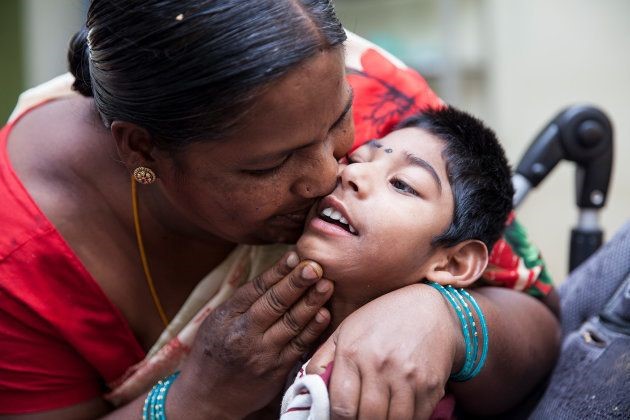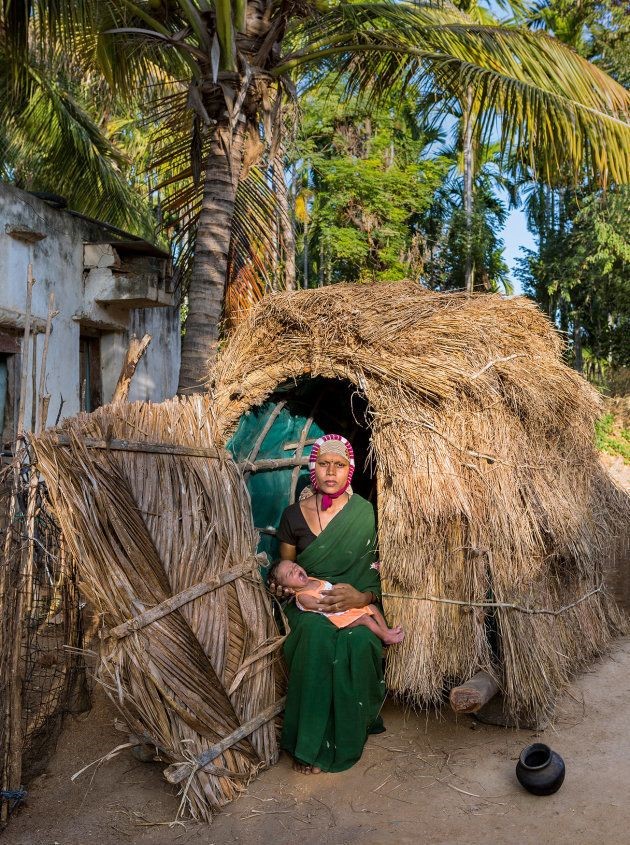Home > Blogs
The Invisible Mothers of India
As we celebrate Mother’s Day this coming Sunday, this article is dedicated to the millions of single mothers living in rural India and making superhuman efforts and fighting every day to support their families. These courageous women are silently suffering from the stigmas and judgments that they are constantly subjected to, however as they began questioning their own complicity with patriarchy, they started educating a new generation of women with their own voices.
Krishaveni: A Simple Widow’s Story
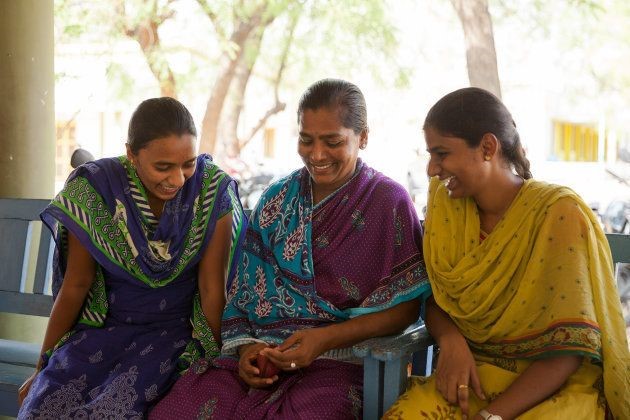
Today she runs a sari business with great success. Moreover, her second daughter, Gowthami, 20 years old, appeared in a local newspaper that took note of her excellent qualifications. Bit by bit, she has been regaining the respect of the people around her. Bharathi and Gowthami study Business and Electrical Engineering respectively, and they appreciate “her courage and persistence to support us.” That’s why they say that they will take their mother with them if they one day move to the big city: “We will not accept marriage to any man who does not allow our mother to live with us.”
@NAGAPPA/RDT 2022
Neelima: Abandoned by Her Husband, She Preserves Her Family
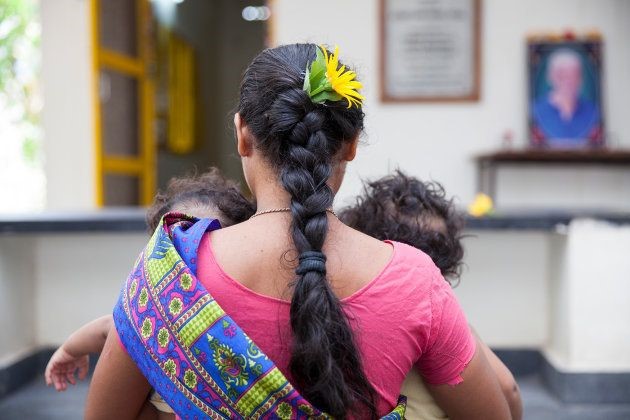 At the age of 25, Neelima is the mother of three children – Laysa, 5 years old, and 6-month-old twins Vishnu and Jishnu. When they were born, her husband disappeared. Neelima is considered an abandoned wife: “If he came back home, I’d be happy, although I wouldn’t trust that he wouldn’t leave again.” The people around her predicted that she would take her own life. In rural communities, people’s gossip puts huge pressure on single mothers or widows, who are judged without compassion. She was later evicted from her house and, without economic resources, she could not even feed her children.
At the age of 25, Neelima is the mother of three children – Laysa, 5 years old, and 6-month-old twins Vishnu and Jishnu. When they were born, her husband disappeared. Neelima is considered an abandoned wife: “If he came back home, I’d be happy, although I wouldn’t trust that he wouldn’t leave again.” The people around her predicted that she would take her own life. In rural communities, people’s gossip puts huge pressure on single mothers or widows, who are judged without compassion. She was later evicted from her house and, without economic resources, she could not even feed her children.
She now lives in the shelter of the Rural Development Trust (RDT), which provides her with food, shelter, and training. “She’s very good at sewing, and in the future, she’ll be able to live off of it,” explains Shakuntala, associate director of the Women’s Sector of the organization. Motherhood has been a salvation for Neelima, who strives for a better world for women and hopes that her daughter can pick up from where she left off. “I would like her to be educated and be able to work in the government of this district so that she can push forward initiatives that help women like me.”
@RAMAMOHAN / RDT 2022
Kavitha: A Mother of Two Autistic Children
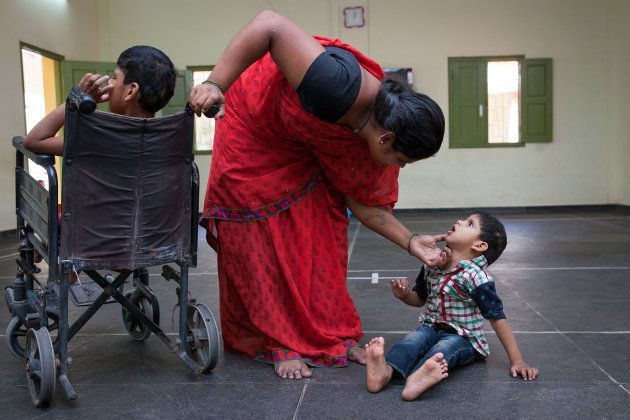
Even so, Kavitha stayed with him because her life would have been more difficult as a single mother. Now she has been able to escape that solitude thanks to her children entering the RDT center in Bathalapalli. Each day she follows a routine that allows the children to receive early care and therapy to achieve improvements in their cognitive and motor abilities. Kavitha knows that she faces an uncertain future, but even though this condition restricts her children’s abilities to communicate and interact with others, with determination and affection, she sometimes gets a smile out of them. In any case, although in this region, people with disabilities are considered burdens who further impoverish others, “my children love to listen to music and being cared for. They depend on me and it’s my responsibility to dedicate time and patience to them.”
@RAMAMOHAN / RDT 2022
Nagamma: Living Without Male Descendants
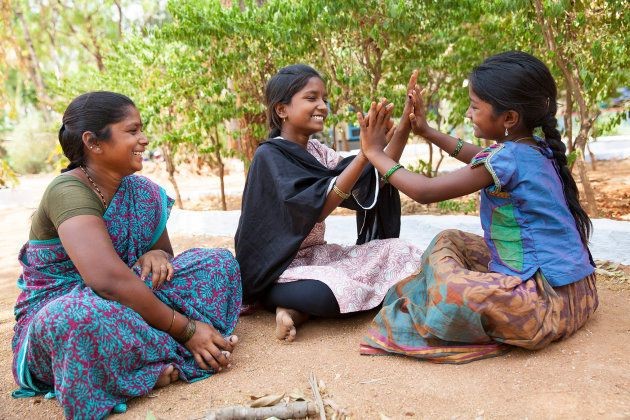
After two caesarian sections with Masana (13) and Siva Kavya (10), she had to subject herself to getting a tubal ligation because a new pregnancy could be high risk. Social norms compel daughters to live with the husband’s family, who will care for them for the rest of their lives, so Nagamma’s worry makes sense. But her daughters, both in the medical profession, immediately reassure her and tell her that they will always care for her. “Our mother has instilled in us the importance of education, so we’re very proud of her,” concludes Masana.
@RAMAMOHAN / RDT 2022
Ramanjinamma: Motherhood is More Than Just a Biological Link
Vishnu is 4 years old and has severe cerebral palsy. He was abandoned at the door of the RDT Hospital when he was only a few days old. His parents neglected him, but he’s always felt close to maternal warmth thanks to the love of Ramanjinamma. She has no children of her own: “For me, it’s like he is my child, it doesn’t matter to me that there is no biological tie. He’s a sociable boy, who smiles a lot, and he’s really improved his mobility in the upper part of his body and he eats eggs by himself,” she explains with the pride of someone who celebrates every minute of life.
Ramanjinamma follows a strict routine so that Vishnu can bring out the best in himself. “We wake up at six in the morning, do yoga and other physical exercises. He eats breakfast at 7:30. He really likes to eat; he’s always hungry. His favorite food is Ladoo – a traditional Indian dessert.” The generosity of a mother has no emotional boundaries and not being the biological mother of Vishnu is merely anecdotal for Ramanjinamma, whose infinite sense of responsibility and protection is like that of any other mother.
@RAMAMOHAN / RDT 2022
Bhagyamma: The “Impurity” of Gola Mothers
In many villages where the Gola community lives, degrading ancestral customs for women are still practiced. In 2015, the Spanish photographer Cristina Garcia Rodero captured in this image the solitude of women who have given birth. From birth to even past quarantine, Bhagyamma (26) had to live in a straw hut built for her and the baby, who then was only 13 days old. Her range of motion is just a meter and a half, in a hut that does not even protect them from insects, scorpions, or snakes. A woman bleeds during this period, and her “impurity” is considered an aggression toward others.
During these 40 days, only women can come close to her. In Bhagyamma’s case, it was her sister Sannaeramma who brought her food and water to wash herself with daily. This photo was taken in Madakasira, where RDT has been operating for the past five years. In places such as Kalyandurg, the Gola community has gotten rid of this inhumane and humiliating practice for women. In Madakasira, this impurity stigma also affects adolescent girls, who are isolated in small structures and stop going to school during this period of “untouchability.”
@CRISTINA GARCÍA RODERO
Please consider supporting single mothers in rural India– click here to learn how you can help
Text by: Raquel Artiles Gaillard, adapted by VFF USA
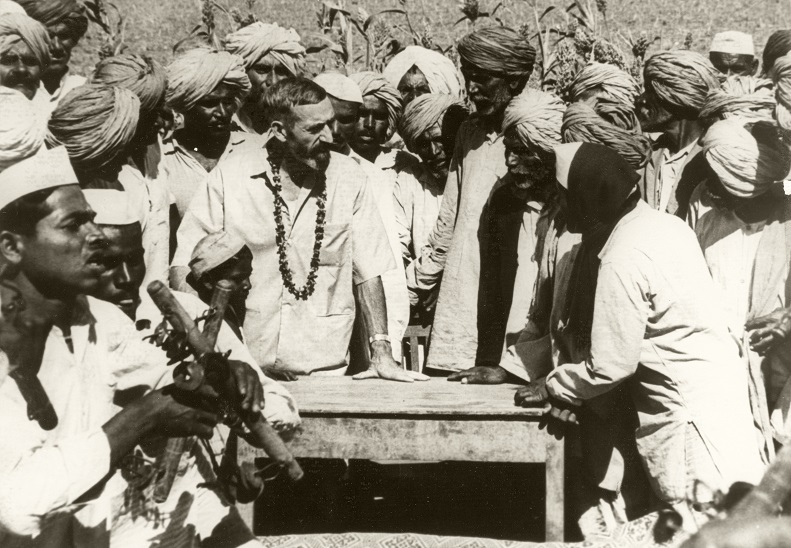
Commemorating 55 Years of the Rural Development Trust (RDT)
01/22/2024Today we commemorate the arrival of Anna Ferrer and Vicente Ferrer to Anantapur and the be...
READ MORE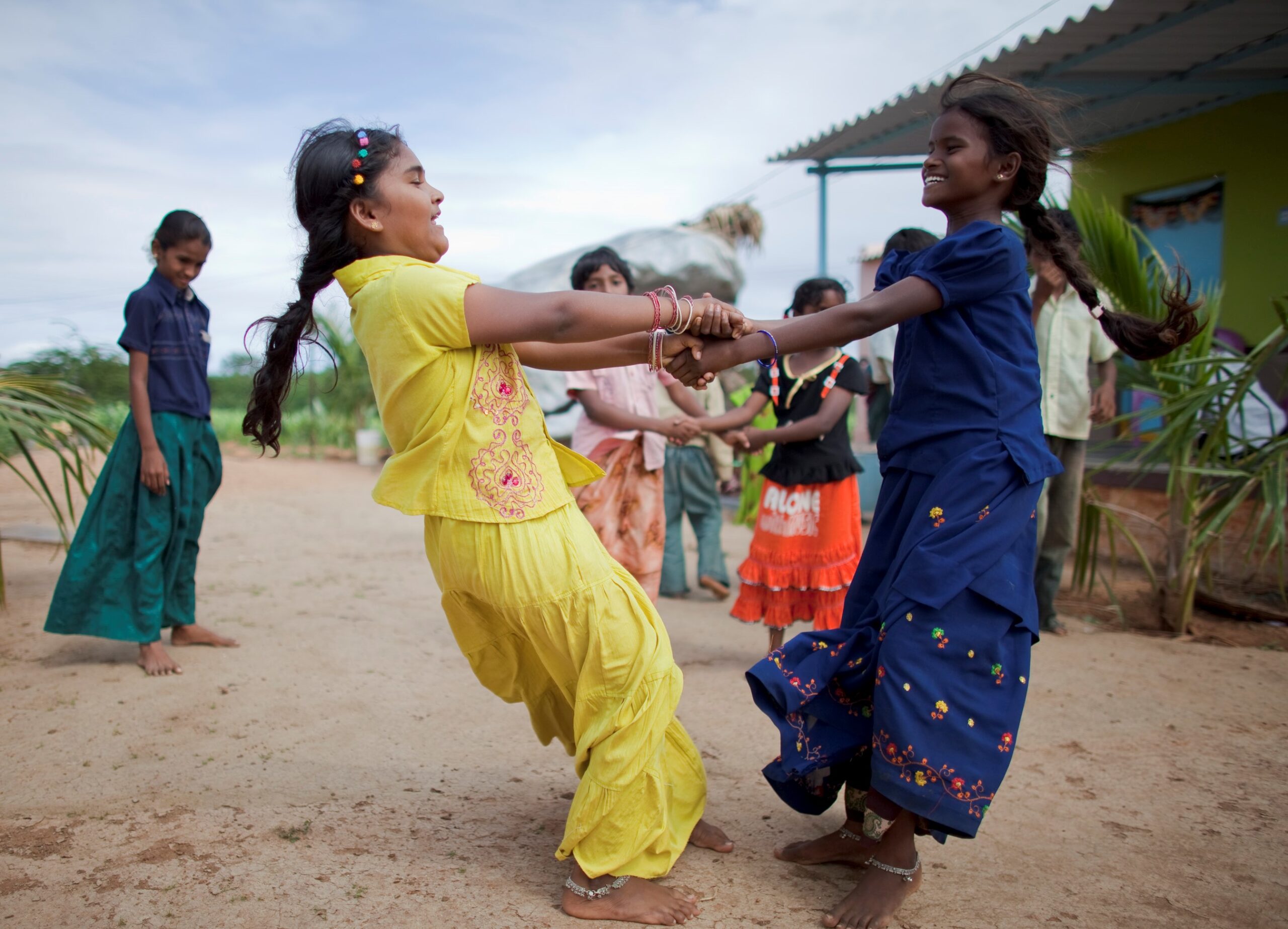
VFF USA & the SDGs: A Bastion of Hope by Suporna Chaudhuri
08/21/2023The United Nations’ Sustainable Development Goals (SDGs) comprise a mosaic of principles...
READ MORE
Empowering Dreams: VFF USA’s Journey at NATA Convention 2023
07/20/2023In the heart of Dallas, the NATA Convention 2023 was a lively gathering of people f...
READ MORESupport our work to help individuals and communities affected by COVID-19
Would you like to know how we use the funds?LEARN MORE
 May 4, 2022
May 4, 2022